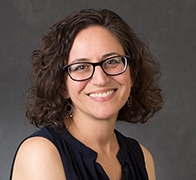Changes in state abortion law mean that prenatal care providers must be prepared to support women unsure about their pregnancy options, says Nancy Berglas
 It’s been hard to miss: abortion is in the news all the time lately, and with good reason. Since the beginning of 2019 five US states have passed laws that ban abortion after six weeks gestation—before many women even know they are pregnant. While none of these bans are currently in effect, a wave of abortion restrictions enacted over the past decade has made getting an abortion exceedingly difficult for many women in America, especially in the Midwestern and Southern states.
It’s been hard to miss: abortion is in the news all the time lately, and with good reason. Since the beginning of 2019 five US states have passed laws that ban abortion after six weeks gestation—before many women even know they are pregnant. While none of these bans are currently in effect, a wave of abortion restrictions enacted over the past decade has made getting an abortion exceedingly difficult for many women in America, especially in the Midwestern and Southern states.
Abortion may be a controversial political and cultural issue, but the evidence is clear: abortion is safe and complications are very rare. Being denied a wanted abortion increases the risk that a woman who continues her pregnancy will experience certain adverse outcomes. It means that she is more likely to be worse off in terms of her financial security, her experience in violent relationships, her children’s development, and her own physical health.
As clinicians and researchers, we often don’t include abortion when we talk about pregnancy, birth, and early parenting support. But this practice ignores the reality that abortion is a common experience for women: research finds that about one in four American women have an abortion during their reproductive lives. Even more striking is that nearly 60% of women in the US who have abortions are already mothers, and many will raise a child in the years following their abortion. Women choose to end their pregnancy for all sorts of reasons, including not being financially able to care for a child, sensing the timing isn’t right, having concerns about their relationship with their partner, and wanting to focus on parenting their existing children.
As politicians enact more laws limiting access to abortion, it’s likely that women in your care will be affected. These laws might affect the decisions they make about their pregnancies, as well as the health and social services support they may need. In order to provide compassionate, respectful, and evidence based care, it is important for birth professionals to understand women’s experiences.
Our research team at the University of California, San Francisco, conducted a study to better understand women’s experiences while making decisions about their pregnancies. We recruited more than 500 pregnant women in Southern Louisiana and Baltimore, Maryland at their first prenatal care visit. In both states, we found that it was common for women to consider abortion before entering prenatal care. About three out of 10 women said that they had thought about having an abortion during their current pregnancy.
By the time they started prenatal care, most women felt sure about their decision to continue their pregnancy. But some were not: about one in 10 women said that they would still like to discuss their options—raising the child, placing it for adoption, having an abortion—with their clinician. This interest in having counselling about pregnancy options was higher among those who told us they were facing socioeconomic hardships, like not having enough food.
We also found that a lot of pregnant women wanted and needed extra support for their families. More than half of the women we interviewed said they wanted information and referrals for food stamps, dental care, and housing assistance. Some wanted help with transportation, child care, home visiting, and job counselling. One of our most interesting findings was that these unmet needs were higher among those women who had considered having an abortion before deciding to start prenatal care.
Regardless of your personal beliefs about abortion, the new wave of policies is likely going to play a part in the care you provide. There has been a lot of confusion about the proposed abortion bans. Women who want to terminate a pregnancy might not know where they can get an abortion, or might continue their pregnancy if they find that an abortion clinic is too far away or the cost of an abortion is out of their reach. Demand for your services may rise, and your mix of clients may change. You may see more women who are uncertain about what their pregnancy options are, and who may need more social and emotional support than your other patients have required.
Our study makes clear that pregnancy and birth care is an appropriate and important time to talk about pregnancy options—including abortion—and to connect women to the services they need. Clinicians should be aware that abortion laws may affect their practice, and that talking with women about their pregnancy options and asking about their health and social service needs helps them to feel supported.
Nancy Berglas is a public health social scientist at ANSIRH. Her research interests centre on issues of adolescent sexual health and rights, the evaluation of school based sexuality education programmes, access to sexual health services, and the use of evidence in the development of sexual health programmes and policies.
Competing interests: None declared
